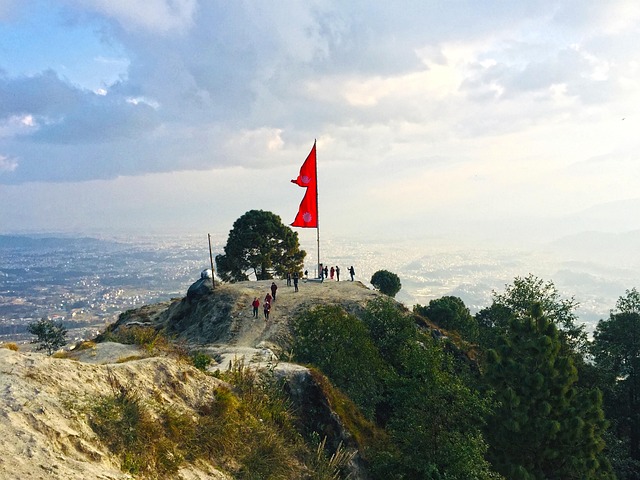Startup Nepal: Why Nepal Needs a Bootstrap First Philosophy in its Accelerators

The Accelerator Conundrum is a multipart series that challenges the prevailing wisdom of the tech startup ecosystem that entrepreneurs should Blitzscale out of the gate. Written by Sramana Mitra, the Founder and CEO of One Million by One Million (1Mby1M), the world’s first global virtual accelerator, it emphatically argues that a better strategy is to Bootstrap First, Raise Money Later, focus on customers, revenues and profits. 1Mby1M’s mission is to help a Million entrepreneurs reach a million dollars in annual revenue and beyond. Sramana’s Digital Mind AI Mentor virtually mentors entrepreneurs around the world in 57 languages. Try it out!
Nepal’s startup ecosystem is still young but growing rapidly. Over the past decade, an increasing number of young entrepreneurs have begun exploring technology-driven ventures in sectors like fintech, tourism, agriculture, education, and e-commerce. With a youthful population and growing internet penetration, Nepal has enormous potential to become a thriving entrepreneurial hub for South Asia.
However, much of the startup narrative in Nepal is heavily influenced by Silicon Valley’s funding-first mindset. Founders are encouraged to raise venture capital quickly and scale aggressively. In a market like Nepal, this approach rarely works. Venture capital is scarce and concentrated in a handful of sectors. Many promising founders spend months chasing investors rather than customers, only to walk away empty-handed and discouraged.
At 1Mby1M, we champion a different philosophy: Bootstrap First, Raise Money Later. This methodology encourages founders to focus on building a sustainable, revenue-driven business before seeking outside capital. By generating revenue early, entrepreneurs gain independence and retain control over their companies.
In Nepal, where access to capital is limited and market dynamics are complex, bootstrapping isn’t just a strategy—it’s a necessity. For example, a startup solving agricultural supply chain problems in rural Nepal might take years to validate its model before it becomes attractive to venture capitalists. Bootstrapping allows such companies to grow steadily, supported by real customers, rather than being forced into premature scaling.
As we will explore in this series, Nepal’s current accelerator programs have made important contributions to nurturing early-stage startups. However, their focus on fundraising and urban centers leaves many entrepreneurs underserved. 1Mby1M’s global, virtual, no-equity model offers a powerful alternative—one that empowers founders across Nepal to learn, grow, and thrive without the constraints of geography or language.
In the final part of this series, we will also discuss our AI Digital Mentor, which is now available in Nepali, making world-class entrepreneurship education accessible to every corner of the country.
The Local Accelerator Landscape
Nepal’s startup scene has benefited from several accelerator and incubator programs over the past few years. Some of the most prominent include:
- Rockstart Impact Nepal – A leading accelerator program focused on impact-driven businesses, especially in sectors like energy, agriculture, and health.
- Udhyami Seed Camp – Organized by Clock b Business Innovations, focusing on early-stage startups with a strong community-building component.
- Seedstars Kathmandu – The Nepal chapter of the global Seedstars network, connecting startups to international investors.
- King’s College Business Incubation Center – University-backed incubator supporting student and faculty entrepreneurs.
- Women’s Foundation of Nepal Programs – Focused on women-led enterprises and social entrepreneurship.
- Idea Studio Nepal – A TV-based entrepreneurship program raising awareness about startup innovation.
These programs have made meaningful contributions by:
- Raising Awareness:
- Television programs like Idea Studio have made entrepreneurship mainstream in Nepalese culture.
- Building Urban Communities:
- Rockstart and Udhyami Seed Camp have created spaces for founders in Kathmandu to collaborate and learn.
- Providing Early Capital Access:
- Seedstars connects promising startups with global investors.
However, there are significant limitations:
- Geographic Concentration:
Most accelerators operate in Kathmandu Valley, leaving rural entrepreneurs—who make up the majority of Nepal’s population—without access to resources. - Short Cohort Timelines:
Programs typically run for 3-6 months, forcing startups into a rushed process to become “investment-ready.” - Equity or Funding Pressure:
Many programs emphasize fundraising too early, pushing founders to chase investors before validating their business models. - Limited Post-Program Support:
Once the demo day ends, many founders are left without structured guidance to continue scaling.
While these local accelerators have been vital in sparking Nepal’s startup movement, they cannot scale to reach the thousands of aspiring entrepreneurs across the country. This is where 1Mby1M’s virtual model can play a transformative role.
Related Post:
Startup Nepal: Comparing Local Accelerators with 1Mby1M
One Million by One Million (1Mby1M) is the first global virtual accelerator in the world, founded in 2010 by Silicon Valley serial Entrepreneur Sramana Mitra. It offers a fully online entrepreneurship incubation, acceleration and education resource for solo entrepreneurs and bootstrapped founders working on tech and tech-enabled services ventures. 1Mby1M does not charge equity, offers an AI Mentor in 57 languages, and offers a distinct advantage over other accelerators including Y Combinator.
This segment is a part in the series : Startup Nepal
. Why Nepal Needs a Bootstrap First Philosophy in its Accelerators
. Comparing Local Accelerators with 1Mby1M
Featured Videos
Can 1M/1M Help Me Raise Money?
How Does 1M/1M Democratize Entrepreneurship Education?
How Does 1M/1M Democratize Management Consulting?
When Is The Right Time To Join 1M/1M?
Can 1M/1M Help Me With Business Development?
Can 1M/1M Help Me With Market Sizing?
Can 1M/1M Help Me Validate My Product?
Will I Have Private 1-on-1 Sessions In 1M/1M?
How Does 1M/1M Help Entrepreneurs Connect With Silicon Valley?
Mentoring or Consulting?
Why Does 1M/1M Charge $1000 a Year?
Why Does 1M/1M Partner With Local Organizations?
Why Don\’t Mentoring Networks Work?
Why Is It Important To Study With 1M/1M Now?
Dan Stewart Story
Vikrant Mathur Story
